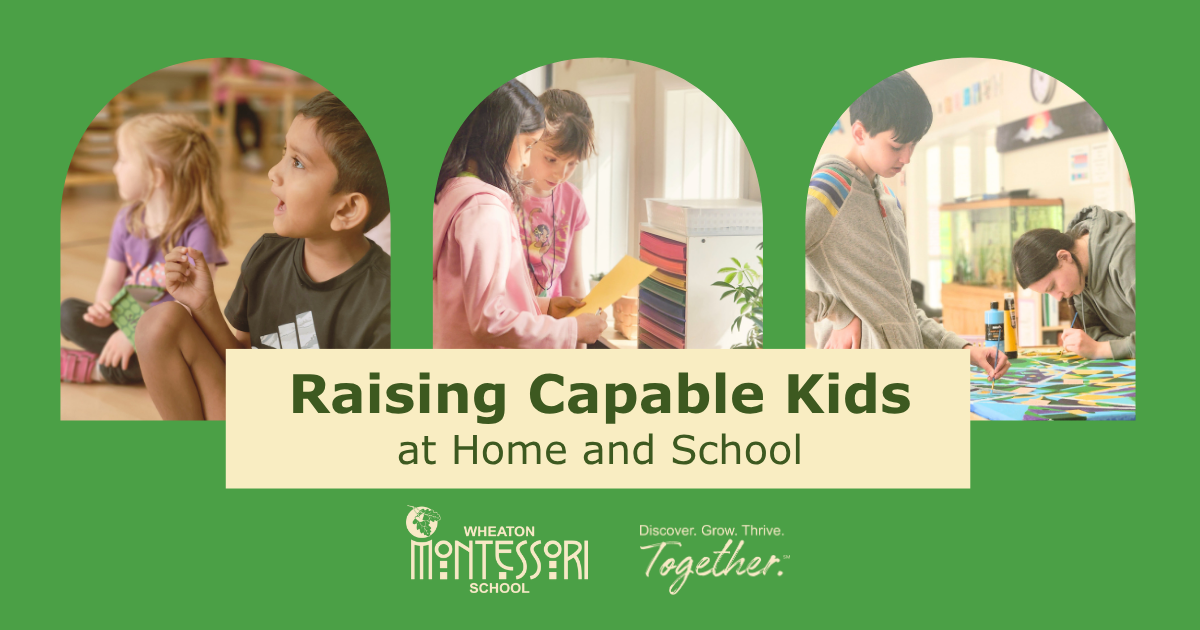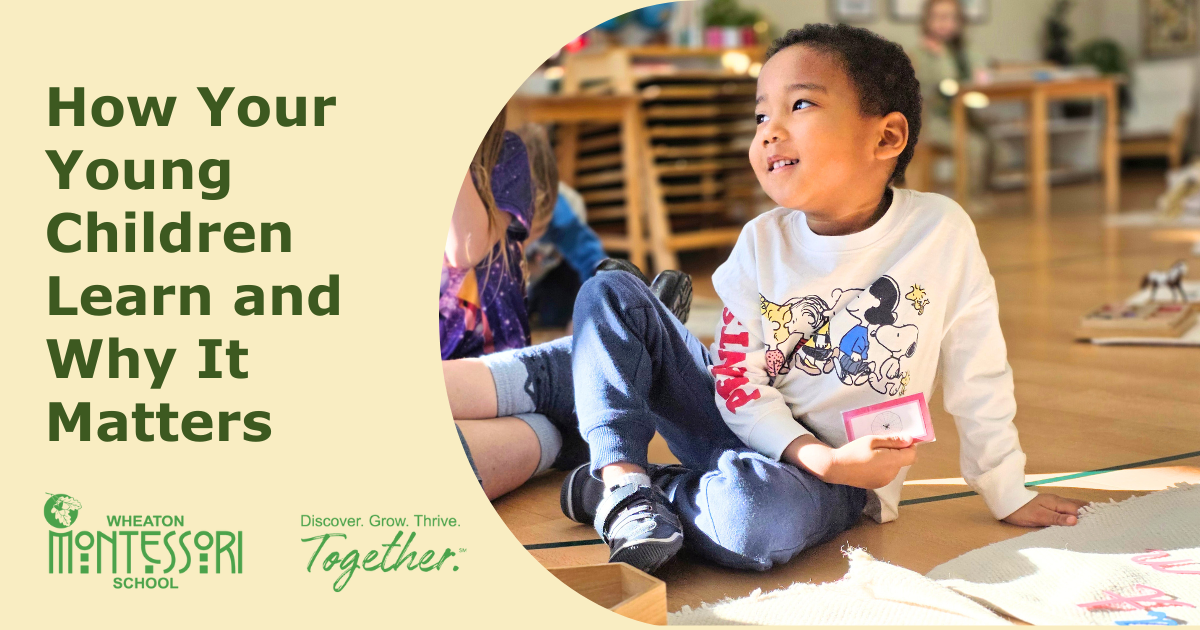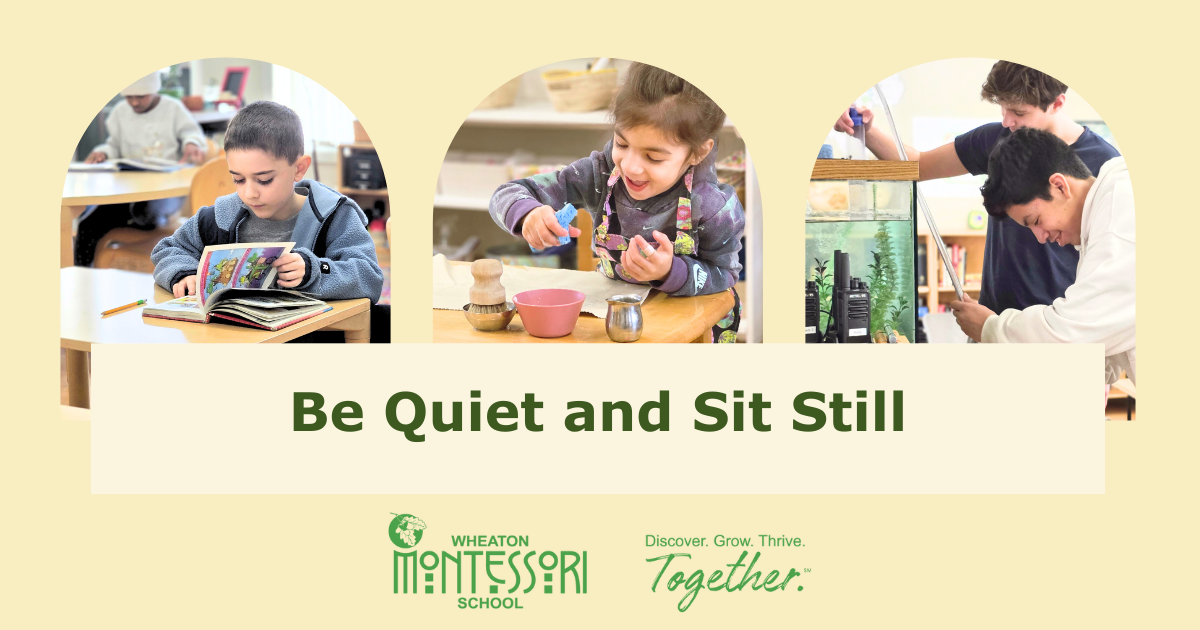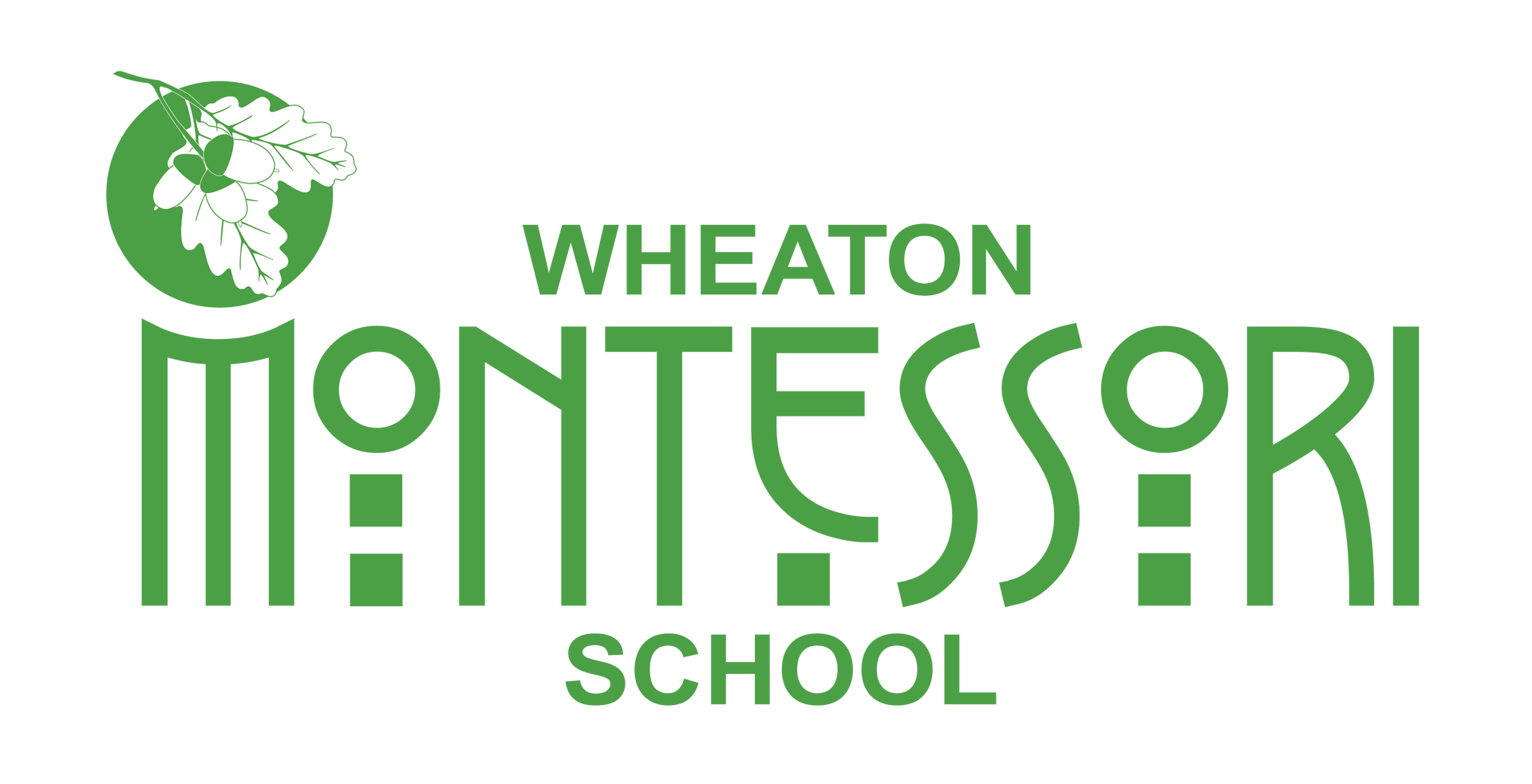
Building Independence
In accredited Wheaton Montessori School classrooms, Practical Life activities are intentionally set up and individually taught to support children’s independence. The preschool sink is at children’s height. The adolescents’ beekeeping tools have a place, and all grade levels learn how to use and return all of their items with care.
This thoughtful preparation allows learners to take on tasks that might previously have been done for them. Now, they can do it for themselves, and in doing so, they begin to see themselves as capable and responsible individuals.
Even our youngest children can begin participating in daily routines through collaboration. For toddlers, we say, “I’m going to zip your jacket. Let’s slide the zipper foot into the lock, and you can pull up the tab,” involving them in the process. As the children grow, they imitate the adults around them and eventually take on tasks in their unique way. This process isn’t always linear — some days, more support is needed. On those days, we can offer gentle encouragement, saying, “Let’s do this together,” while still honoring our children’s role in the task.
Life Skills Learned in Classrooms
In addition to self-care, children in Wheaton Montessori School are given many opportunities to care for their surroundings. From watering plants to sweeping floors, these real and purposeful activities help children feel connected to their community.
Success in this area depends on a well-prepared environment. Child-sized tools and meaningful work allow the child to make a visible impact. If the plants are dry, the children water them. If a table is dirty, children scrub it. These aren’t pretend tasks — they are real contributions, and students know it.
This work carries over into older classroom communities. Elementary classrooms have a job chart with weekly chores that include pet care, plant care, laundry, prepping for lunchtime, and helping to clean classroom shelves and materials. This hands-on work extends to elementary group travel, where students help clean cabins and participate in meal service and clean up.
Adolescents clean their food lab after preparing meals from scratch each day, maintain learning spaces, and plan and run microeconomies that support their classroom work and travels. Some of this work includes gardening, aquaponics, beekeeping, and caring for our chickens.
Life Skills Practiced at Home
Parents often ask how they can support Practical Life at home. The good news is that this work at home compounds academic learning, and it doesn’t require elaborate preparation. A few intentional routines and accessible materials go a long way towards success.
Having a basket for laundry, a drawer with placemats and utensils for setting the table, or well-fitting oven mittens for baking are some of the simple choices that afford ownership.
When creating Practical Life opportunities at home, consider these guiding ideas: provide usable tools, keep tasks logical and safe, model as necessary, and instruct beforehand.
In an ideal scenario, parents can appreciate when their children complete chores, recognizing the effort and skill involved, even if the results do not meet their standards or expectations. It is important to understand that the outcomes of chores do not need to reflect the polished standards often seen on social media. Instead, the true value of these tasks lies in the personal growth and life skills they develop over time. By allowing children to take ownership of their chores, parents encourage resilience, independence, and a sense of accomplishment—qualities that are invaluable throughout life.
Visit our school and discover how completion of our Primary, Elementary, and Adolescent Programs supports our students in becoming independent, confident, and capable young adults.
Preschool enrollment is currently open, providing opportunities for eligible early childhood students to join our exciting summer camps, running through August 15th, as well as for the upcoming 2025-2026 school year. Act quickly, as we have limited spots available for new children aged 4 ½ and under!
Prospective families with toddlers and children under 4 ½ are encouraged to sign up for a school tour to explore the advantages of our Primary Program, which lays the essential foundation for our Elementary and Adolescent Community Programs*. Prospective families who are enrolled in the 2025-2026 School Year are welcome to sign up for Wheaton Montessori School summer camps.
Current families and 2025 alumni students are eligible for summer camps.
* Individual school tours for kindergarten through 9th grade are not available, and the waitlist remains closed for the 2025-2026 School Year. The only exception is considered for students transferring from AMI-accredited Montessori schools that have maintained continuous attendance.


